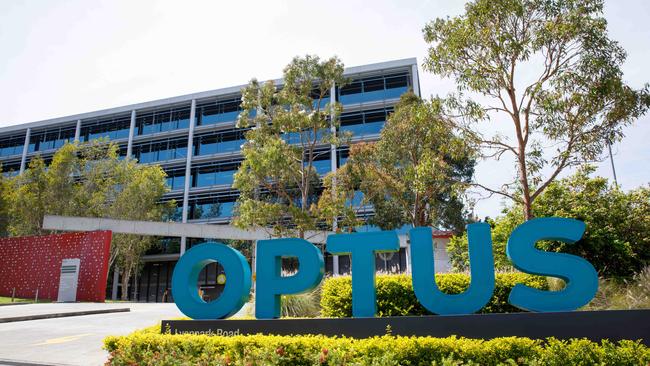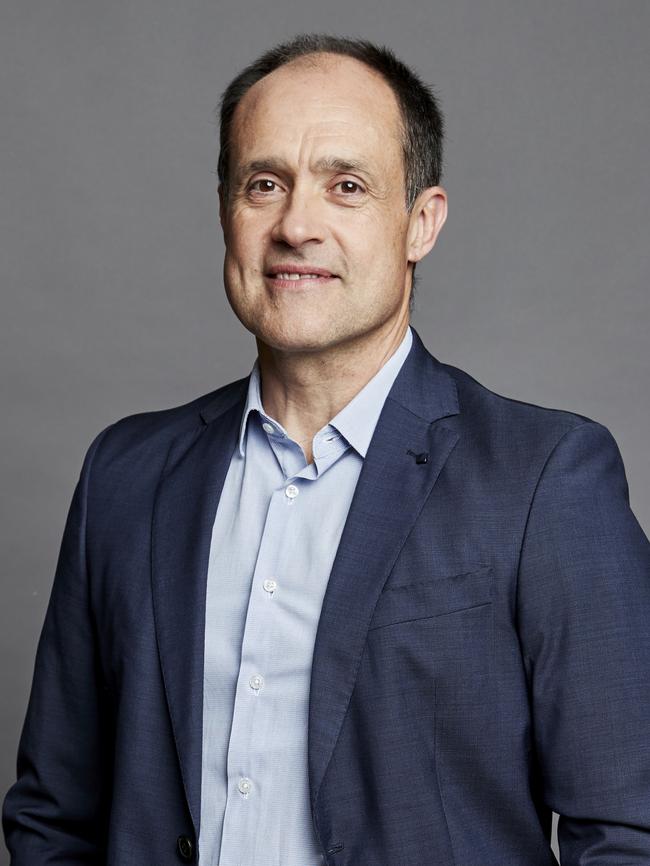$1.6bn Optus-TPG deal will ‘reset’ regional Australian networks
Optus has signed a $1.6bn deal with TPG in which the two major telcos will share mobile networks across regional Australia.

Optus has signed a $1.6bn deal with TPG in which the two major telcos will share mobile networks across regional Australia.
It comes as Optus’s parent company, Singtel, reported a $S3.1bn ($3.5bn) writedown, most of it related to Optus.
The nation’s second-largest telco is set to receive about three-quarters of the $1.6bn sum – totalling $1.19bn – which interim CEO Michael Venter told The Australian would be put towards accelerating Optus’s 5G rollout across the country.
“Across the whole of the network, we spend about $1bn per year. This is an acceleration of capital expenditure which allows us to go faster in the region to convert 4G into 5G,” he said.
TPG would triple the number of mobile sites it has access to, transferring the few it has in areas where Optus doesn’t to the telco and decommissioning others. TPG chief executive Inaki Berroeta told The Australian the benefits for TPG would be “obvious and immediate”, providing significantly more coverage, capacity and speed to customers.
Singtel confirmed on Monday that the majority of its $3.1bn writedown related to Optus, which experienced an “overall decline” in the local enterprise market.
“Optus Enterprise has been reporting steep declines in fixed carriage revenue due to churn and price erosion, which has led to lower recovery value,” Singtel said.
“As a result, Optus expects to record non-cash impairment provisions of approximately $540m ($S470m) on its enterprise fixed access network assets.”
The network-sharing announcement comes after the competition watchdog knocked back a similar $1.8bn network-sharing deal between Telstra and TPG last year, ruling it was not in the best interest of market competition.


That deal effectively left the door open for Optus and TPG to work together, Mr Venter said, with Mr Berroeta adding that the two major telcos had been in talks ever since that Telstra-TPG deal was knocked back.
“We are pretty confident that the ACCC will be supportive of it. When they knocked back the previous transaction, they did not close the door completely on a transaction like this,” Mr Venter said.
A Telstra spokesman told The Australian that while the telco welcomed more providers to “step up to this challenge” of improving regional coverage, “customers in regional, rural and remote locations know that only Telstra can provide the secure, reliable, resilient mobile network they need”.
“If this proposal goes ahead it is another reason for government, policymakers and regulators to look at how Australia uses the scarce resources of mobile spectrum to best support customers in regional, rural and remote areas,” he said, adding that spectrum should be allocated in a way that reflected the investment that “operators have made to improve coverage”.
Optus and TPG’s 11-year multi-operator core network (MOCN) deal, which TPG has the option to extend for a further five years, would begin from next year if it receives regulatory approval.
While the vast majority of benefits appear to be in the favour of TPG, which will triple the number of mobile sites it has access to and increase its coverage from 400,000sq km to more than 1,000,000sq km, Mr Venter said Optus would save a significant sum it spent on the repair, restoration and upgrade on networks.
“TPG has two wins effectively. They don’t have to roll out their network and they save on their operational expenses. And for us, we’ve already got a network that we get a contribution to the maintenance of and then swap out of that network,” Mr Venter said.
Under the deal, Optus would have access to TPG’s 755 mobile sites, but many would be decommissioned in areas where Optus already operated a site or where there was overlapping coverage. The telco would receive a small coverage boost in areas where it didn’t have sites operating.
TPG will also receive a significant financial boost of about $420m from Optus for use of its spectrum, which will significantly increase the capacity of some services.
Both telcos, the nation’s second and third largest respectively, are expecting to gain further market share under the deal and raise the bar for competition with the nation’s largest telco, Telstra.
Mr Berroeta said TPG firmly believed that the only “feasible” way to expand network coverage was through partnerships.
“The solution to expanding coverage and to have more players in the market is to do it through the infrastructures that is already there. It is unfeasible, especially without impacting the cost of the services, to duplicate infrastructure,” he said. “From a customer perspective, for any of our brands when this dead gets implemented, they will overnight have more than double the coverage that they have today.”
Corrs Chambers Westgarth is advising TPG on the deal, led by technology, media and telecommunications head James North.








To join the conversation, please log in. Don't have an account? Register
Join the conversation, you are commenting as Logout